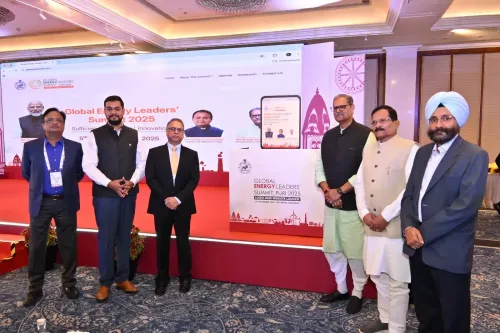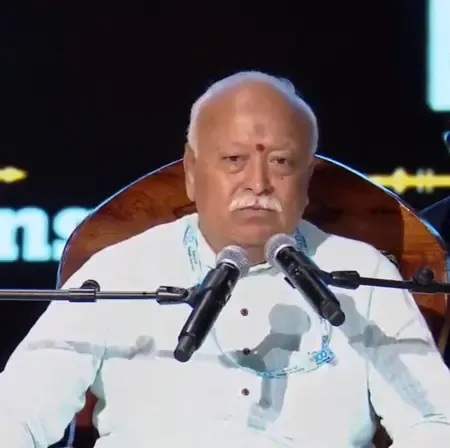How Many Jobs Does India Need to Create Annually?

Synopsis
Key Takeaways
- India needs to create 8 million jobs annually for economic growth.
- AI should complement human labor in sectors like healthcare and education.
- Current computing limitations hinder India's AI development.
- Data ownership is a pressing issue as AI adoption rises.
- Collaboration between research and innovation is essential for progress.
New Delhi, Nov 13 (NationPress) India needs to generate close to 8 million jobs each year for the next 10 to 15 years to leverage its demographic dividend, which is a finite opportunity, according to Chief Economic Adviser (CEA) V. Anantha Nageswaran. During a webinar organized in collaboration with the Indian Council for Research on International Economic Relations (ICRIER) and Prosus at their Centre for Internet and Digital Economy, CEA Nageswaran emphasized that artificial intelligence (AI) should serve to augment rather than substitute human labor, especially in critical sectors like healthcare and education.
He remarked that AI could empower frontline workers to provide exceptional services on a larger scale, particularly in remote and underserved areas. Nageswaran also highlighted the current constraints of India's computing and GPU capabilities compared to the United States and China, which hampers the nation’s capacity to cultivate large-scale AI models.
He noted that the recent drop in AI subscription costs by global platforms—where monthly fees are now comparable to a single low-cost annual subscription—will likely spur user adoption but may also lead to an increase in the volume of Indian-generated data being utilized by foreign AI entities.
CEA emphasized that as users increasingly upload various types of files instead of just text prompts, the volume of detailed and sensitive data produced in India will rise, raising significant questions regarding data ownership and data sovereignty as essential policy issues moving forward.
The event also featured Nobel laureate Professor Daron Acemoglu, who discussed how AI could be harnessed to enhance workforce development, productivity, and service delivery in India. Acemoglu argued that AI tools designed to assist technicians, nurses, and educators would enhance economic participation and productivity, while AI focused on replacing labor could impose economic challenges for countries with a middle-skilled workforce.
Pramod Bhasin, Chairperson of ICRIER, expressed enthusiasm in renewing the partnership with Prosus to establish a Centre of Excellence focusing on India’s digital economy. Sehraj Singh, Managing Director of Prosus India, stated that by merging ICRIER’s research prowess with Prosus’s innovation-led entrepreneurship experience, “we aspire to generate actionable insights that facilitate inclusive and responsible digital transformation.”









